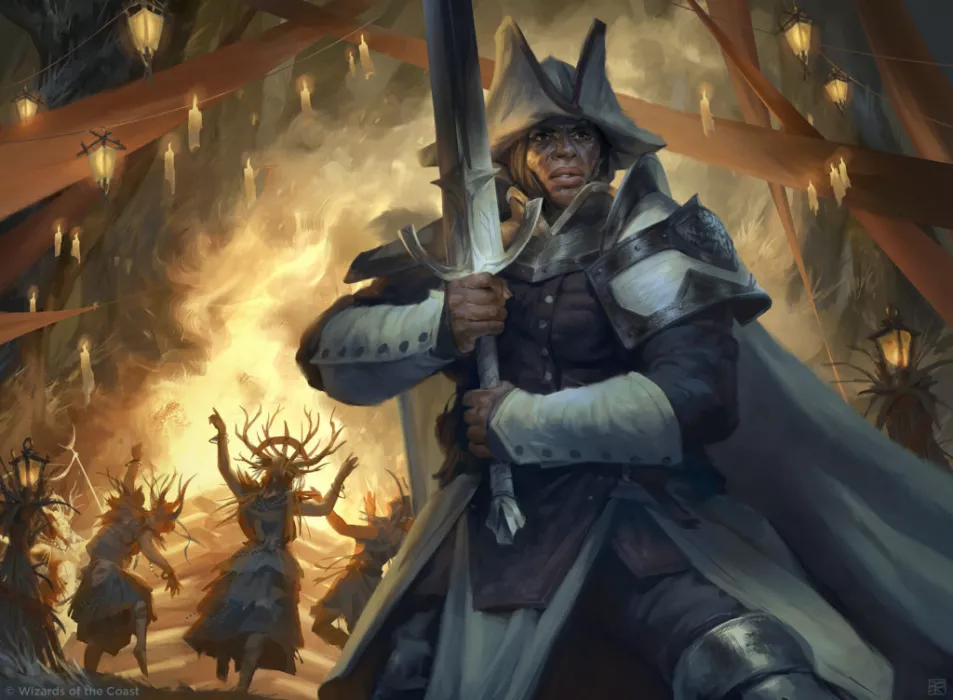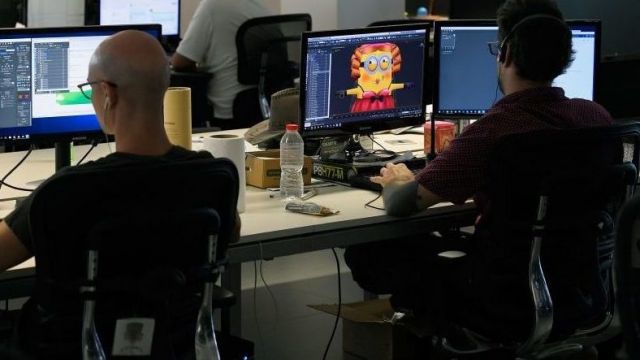While the pandemic severely damaged many industry sectors, gaming exploded as people had more free time and more disposable income.
However, amid record profits for gaming firms, stories of the working conditions and allegations of bullying and harassment came to light, leading to a global push for unionisation within the industry.
Despite Ireland's video game industry being much smaller than the likes of those in the US or Japan, it is now facing a similar reckoning around pay and working conditions.
While there is no industry body like the Irish Farmers Association or Licensed Vintners Association, Imirt is the closest equivalent and represent game creators in Ireland.
Two of its members Denman Rooke and Ellen Cunningham spoke to Breakingnews.ie about the issues affecting workers in the sector.
After working as an artist for a number of game studios in Ireland and the UK, Denman now runs an art services studio in Galway called Rúach.
Ellen Cunningham is a game writer who works with an indie studio based in Dublin called Gambrinous, who have made games like Guild of Dungeoneering and Cardpocalypse.


As members of Imirt and the Game Workers United Ireland union, they have both heard first-hand accounts of the problems workers face.
"The biggest thing we have heard from the developers is that a lot of them are burning out, and in a very short period of time.
“It is not something that is sustainable. We have a very young industry as it is, so there is a lot of inexperienced people coming in," Ellen says.
The knock on effect of people leaving the industry is that if effects the quality of games, because teams are not developing chemistry over long periods.
"We also have heard stories where people are doing ridiculous hours and getting physically sick from the stress," Ellen says.
This type of burnout stems from poor management where to meet deadlines workers have to crunch i.e. compulsory overtime work that goes unpaid.
Denman says there is "pressure to work late, and you are in a culture full of passion. If you want to move up the ladder, there is an external pressure to work late."
He says managers often do not do it intentionally, but they get into a cycle of relying on it when a project is nearing a deadline.
"Also the fact free it is free is another reason they use it," he says.
Crunch culture
Ellen says what makes things worse is that when people suffer burnout, a lot of workers do not get sick pay.
"It compounds the issue, so people cannot take time off, but they are burnt out" Ellen says.
One of the reason workers are often exploited is because of their contracts. As someone who runs an independent studio Denman is his own boss, but he has been contracted to studios before.
"In the past 10 years, when I was a full-time employee, the contracts would say 40 hours a week, but it would also mention needing to work longer hours to meet certain requirements.”
I have never seen a contract that mentioned overtime pay.
It means that there is no paid overtime, and the contract is intentionally left vague. Denman says "I have never seen a contract that mentioned overtime pay."
Because contracts do not have a clause about overtime pay, workers feel they do not want to step out of line and ask a manager about it.
According to the Game Workers United Pay transparency report 2021, salaries in the industry can vary depending on the role.
The report found people working in programming roles are the highest paid with 78 per cent earning above €40,000, followed by production roles with 63.5 per cent earning the same amount.
In terms of unpaid overtime, 82 per cent of respondents said they did not get compensation for overtime. The survey also found 78 per cent of workers do not receive pension contributions.
All of this paints a picture of an industry where workers feel pressured to work long hours and where their long term future is far from secure.
Denman says: "Because there are no protections in place for working overtime. I have been in positions where something is not working, and instead of changing things you are essentially forced to crunch to fix it.”
Ellen says that long term this sort of work practice could kill the industry here.
One source who is a programmer for an Irish studio that does not wish to be named, says the problem goes deeper than just management.
Casual work environment
"I think it is something that is built into the industry. It is an industry fuelled by passion and rock star developers."
The programmer says because the work environment is more casual, your commitment can often be questioned if you are not putting in the work.
“There is pressure among other developers where they are like “Well we are working until 7pm or 8pm, why aren't you?," the source says.
There also are very few pathways to move up in the industry for younger workers “What they do is get a fresh batch of graduates, work them hard and burn them out. Then they bring in senior people to fill those roles," the source says.
Thankfully, it is not all doom and gloom and there are things that can be done to rectify these issues.
“We do have quite an impressive indigenous gaming industry and that is before any real investment from the government.
“Now what we really need to see is the Government back collective bargaining and unionising," Ellen says.
With a Digital Gaming Tax Credit in the works, there is a hope that like France or the UK it can help attract developers to these shores.
Game Workers Unite Ireland are also pushing for the living wage of €12.17 to be the minimum across the sector.
This along with better structures to ensure overtime is compensated and a focus on worker retention in the industry, could be the start of the gaming sector moving in the right direction.







